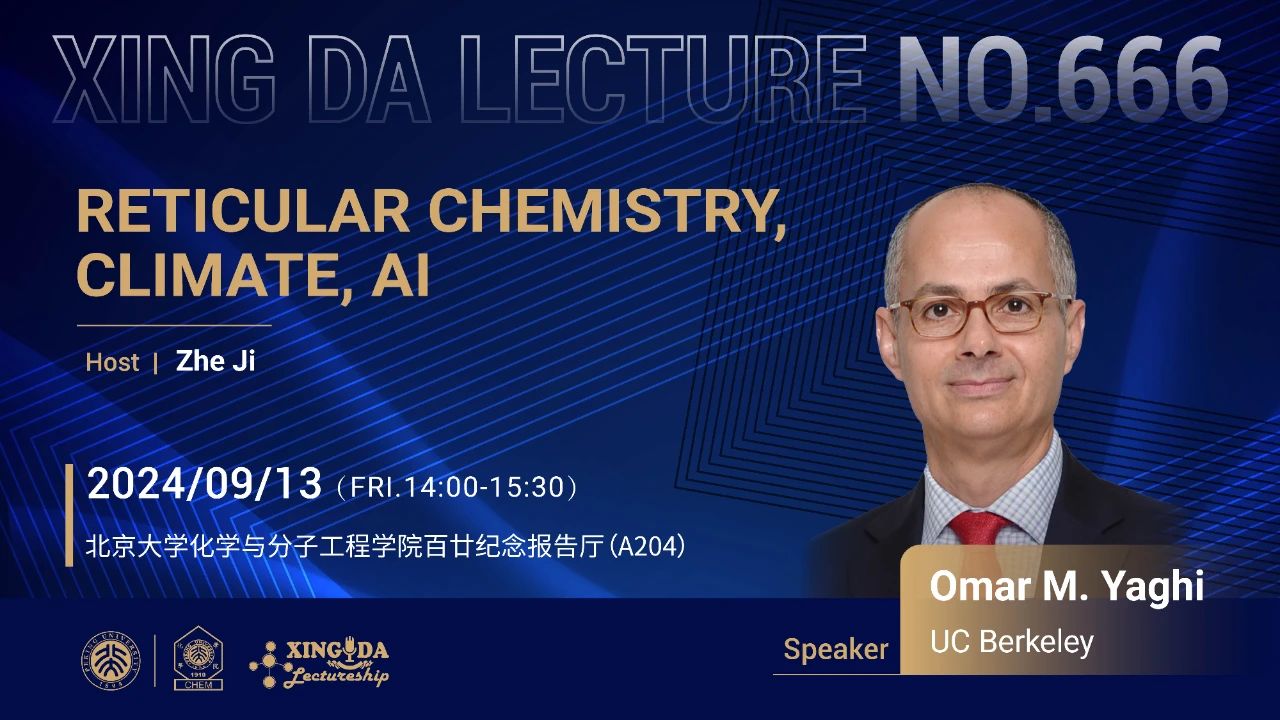
Abstract
Reticular Chemistry, Climate, AIThe clean air, clean energy, and clean water challenges facing our planet today impact our health, wealth, happiness, and future. These three stresses present difficult science and engineering problems requiring, among many aspects, the selective capture of small molecules (e.g. hydrogen, methane, carbon dioxide, and water). Our ability to capture, store, manipulate, and harness the power of these molecules in an efficient and economical manner is paramount to our success in building a sustainable future. The emerging field of reticular chemistry has yielded extensive classes of ultra-porous metal-organic frameworks and covalent organic frameworks. The flexibility with which these materials can be made, modified, and scaled bodes well for their integration into devices and providing robust solutions to these challenges. In this presentation, I will highlight how reticular chemistry has led us to make frameworks for carbon capture from air and flue gas, as well as for harvesting water from air to produce drinking water in various parts of the world regardless of temperature and humidity levels. Our efforts in taking this technology from the laboratory to the field including the design and engineering of prototypes, and applying AI tools to speed up discovery will be discussed and the results presented.
Biography
Prof. Omar M. Yaghi is a James and Neeltje Tretter Chair Professor of Chemistry at UC Berkeley. He is the founder of reticular chemistry, stitching molecular building blocks together by strong bonds to make crystalline frameworks. These frameworks have many applications such as in clean energy, clean air, and clean water. He is a member of the U.S. National Academy of Sciences (2019). He received numerous national and international awards and recognitions: American Chemical Society Award in the Chemistry of Materials (2009), King Faisal International Prize in Science (2015), Albert Einstein World Award of Science (2017), BBVA Foundation Frontiers of Knowledge Award in Basic Sciences (2017), Wolf Prize in Chemistry (2018), ENI Award for Excellence in Energy (2018), Gregori Aminoff Prize by the Royal Swedish Academy of Sciences (2019), August-Wilhelm-von-Hofmann Medal of the German Chemical Society (2020), Royal Society of Chemistry Sustainable Water Award (2020), VinFuture Prize for Emerging Science and Technology (2021), Exner Medal for Direct Impact on Science and Society, Austria (2023), Solvay Chemistry Prize (2024), and Tang Prize (2024).